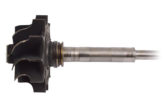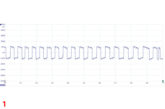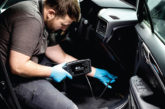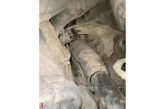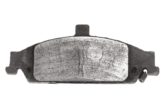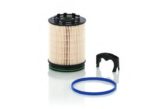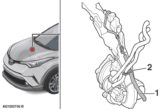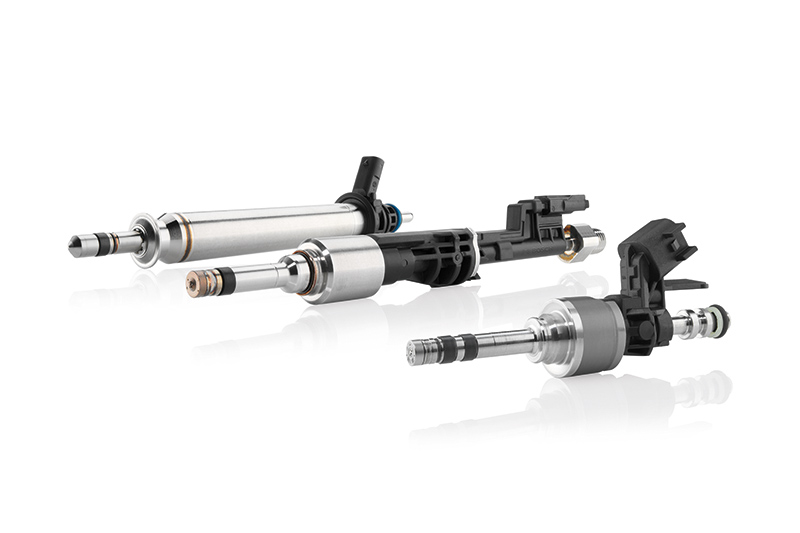
Bosch explains what it offers when it comes to petrol-powered hybrid vehicles.
In the first three quarters of 2021, according to ACEA, the share of hybrid electric passenger cars (HEV and mHEV) registrations accounted for 19.4% of total vehicles. If we sum up the PHEV registrations that represent 8.6%, all types of hybrids represent 28 per cent of the total registrations in the European Union.
In comparison with the first three quarters from 2020, the registration of all hybrids in 2021 has doubled, becoming the most popular alternative powertrain with respect to volumes.
Today on the market there are three commonly known types of hybrid vehicles:
48 V mild hybrid electric vehicle (mHEV)
These vehicles comprise an internal combustion engine, a 48 V motor-generator with a compact 48 V Li-ion battery, where the combustion engine is running all the time except Start/Stop. mHEV provides benefits in terms of efficient recuperation and power boosting and fuel economy up to 15 per cent compared to conventional Start/Stop systems. It is expected that this will be the fastest growing drivetrain typology in the next 10 years.
Full hybrid electric vehicles (HEV)
This technology combines a conventional combustion engine with an additional electric drive, both of them able to run independently or work together to provide a boost of power. The electric drive can move the vehicle alone at low speed and on short distances – up to 3km purely electric (strong hybrid). One of the main advantages is the significant fuel and CO2 savings that enable manufactures to respect the limits of emissions.
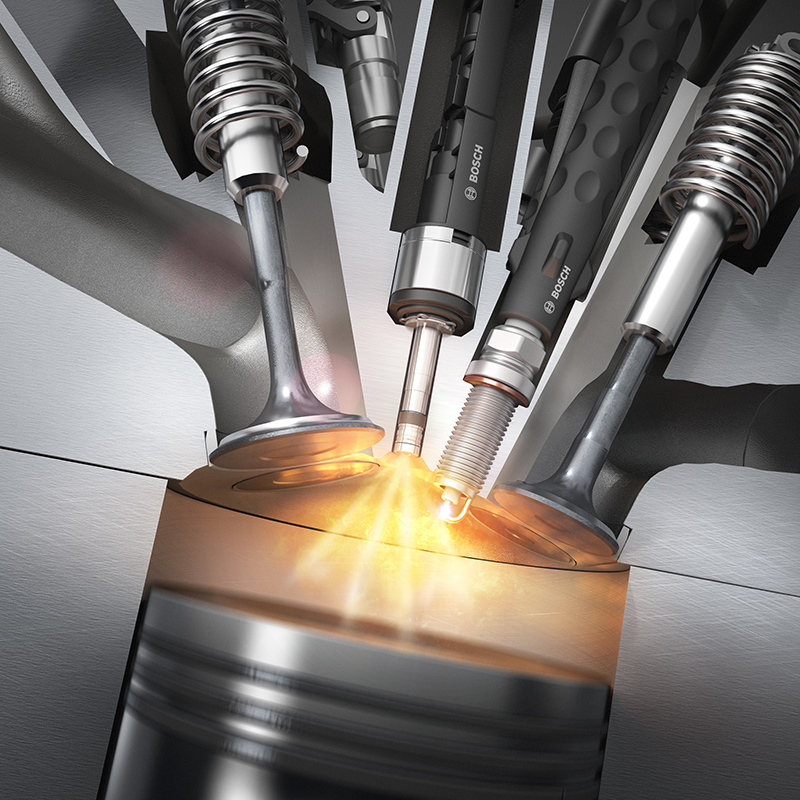
Plug-in hybrid-electric vehicles (PHEV)
These cars go a step beyond HEV, being able to do city traffic in electric mode alone, thus avoiding local exhaust and noise emissions. They are characterised by a larger HV battery and an external charging connection. When drivers need to travel longer distances, even if the battery is discharged, the vehicle will run on its internal combustion engine. In this way the “range anxiety” experienced with the full electric cars is not present for the PHEV.
Gasoline Direct Injection
The majority of manufactured hybrid vehicles have a petrol engine on board. In the future, the most dominant system for hybrids will be gasoline direct injection (GDI), where Bosch has a leading position in OE for both injectors and pumps. GDI is the key to efficient and economical engines because it reduces the fuel consumption and emissions with enhanced driving dynamics due to direct injection of the fuel into the combustion chamber.
The quality of the engine management parts in hybrids is highly important due to the Start/Stop system’s instant starting capabilities in cold weather as well as warm. Only parts having an OE-level quality can ensure the benefit of hybrid technology in terms of fuel efficiency and Bosch is the right partner for this, offering a wide range of components for hybrids. Although existing and available technology, these parts are essential for the maintenance and good functioning of the gasoline engine. For the most sold European hybrid vehicles Bosch provides several petrol parts and below you have a glimpse of what is provided:
- Toyota Yaris 1.5 HSD ignition coils and electric fuel pumps
- VW Passat 1.4 GTE Hybrid Variant and Golf VII 1.4 GTE ignition coils, highpressure injectors GDI, knock sensor, pressure sensor, rotation speed sensor
- BMW 225 xe Active Tourer ignition coil, high pressure injector GDI, high-pressure pump GDI, oxygen sensor, knock sensor.

